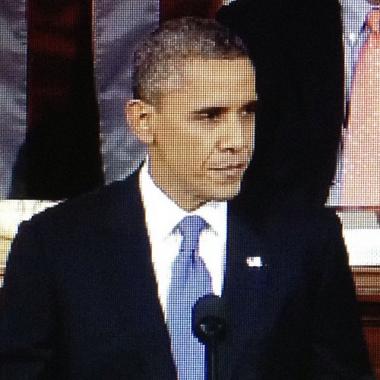
It's hard times in the White House. Barack Obama's approval ratings are at an all time low. The roll out of the Affordable Care Act's health insurance marketplace – upon which Obama staked much of his presidency – was a flop. People are none too pleased that the National Security Agency is collecting massive troves of our personal data, either.
Thus, for this year's State of the Union, the president returned to an old stalwart, a subject that formed a major focus of both his 2008 and 2012 campaigns and which more than two thirds of Americans say they are concerned about today; economic inequality. After all, unless you are super-rich – in which case you've gobbled up 95% of the economic gains made since 2009 – it's tough times all over Obama's America.
The majority of U.S. college graduates had $29,400 worth of debt hanging over their heads last year and the job market they are entering is abysmal. Unemployment dipped below 7% in December, but only because more people gave up looking. For those who have jobs, checks are getting skinnier. Low-income payrolls have surged by 58% since the recession, while medium-income employment accounted for 60% of jobs lost. The median U.S. household income is also in steady decline. Black and Hispanic families have it hardest, taking in about $23,700 and $18,000 less than their white counterparts, respectively.
Speaking before Congress Tuesday, half of whom are millionaires, Obama acknowledged our pain. "[T]hose at the top have never done better," the president said, "But average wages have barely budged. Inequality has deepened."
(If only America had elected a president who pledged to do something about that.)
Read the rest of the article at Policymic.

